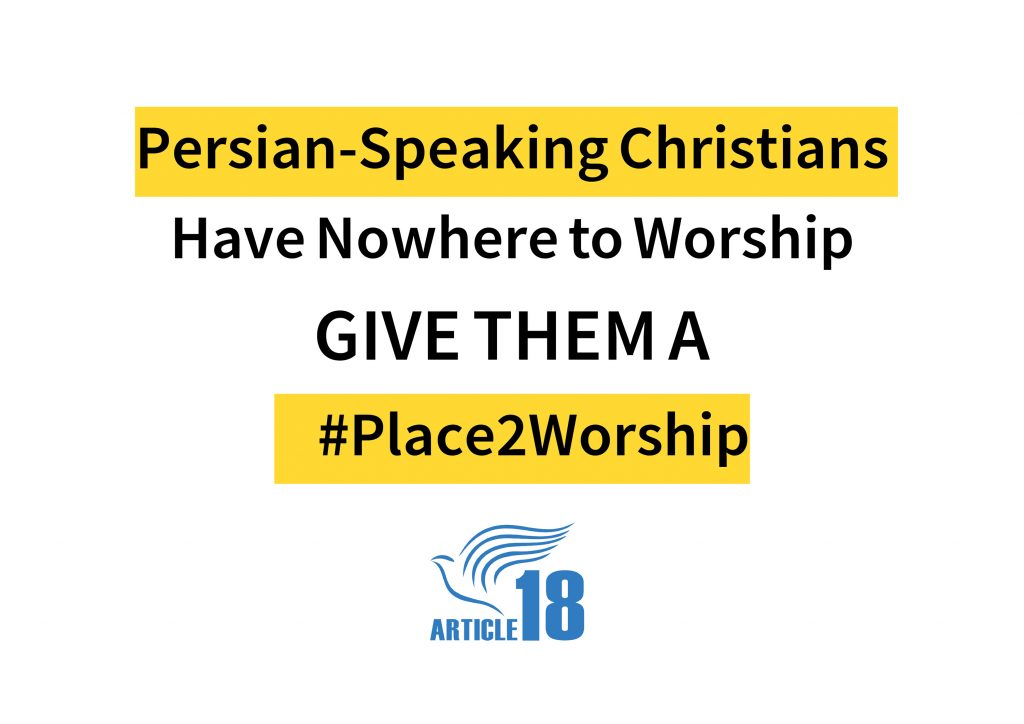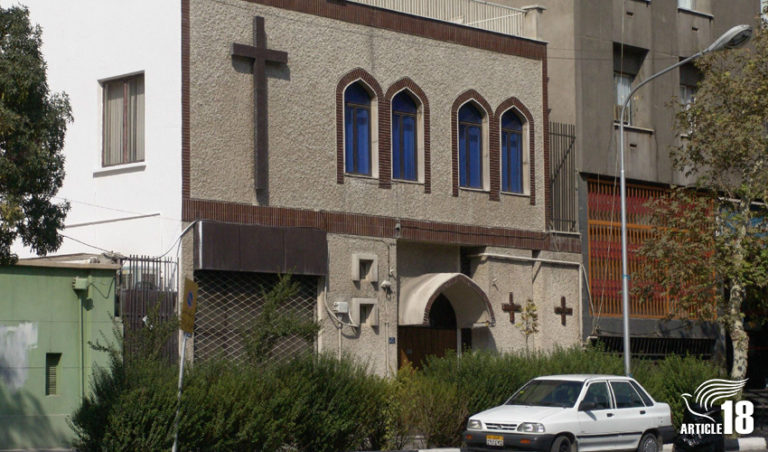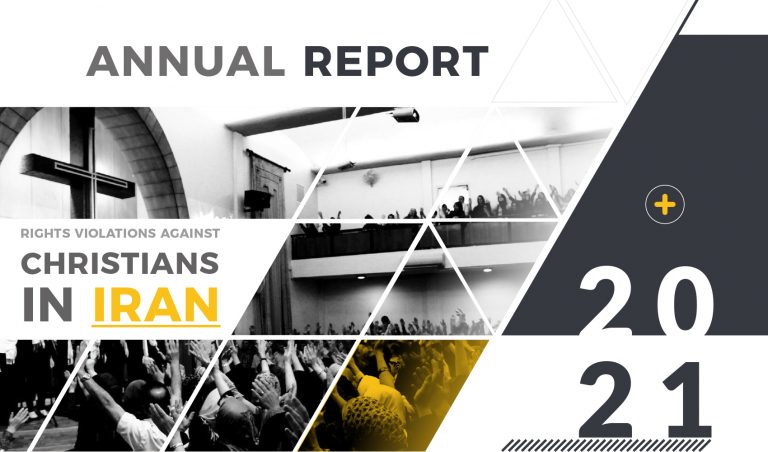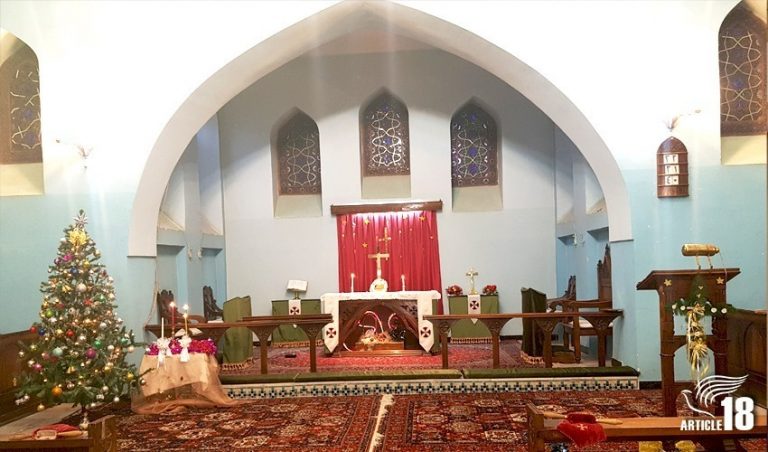
Three Iranian converts serving long prison sentences for their membership of a house-church have written a joint letter and recorded video statements, asking where they should worship once they are released.
As the three men, Babak Hosseinzadeh, Behnam Akhlaghi, and Saheb Fadaie, point out, the churches of Iran’s recognised Christians of Armenian and Assyrian descent are not permitted to welcome Persian-speaking Christians, so their only option is to worship in their homes in what have become known as “house-churches”.
But for this, they and hundreds of other Persian-speaking Christians have been arrested and sentenced to imprisonment in recent years on charges of “acting against national security”.
And so, Behnam asks in his video (below): “If attending a house-church is considered a crime, and churches are closed off – or even if a church is open then it is limited to special individuals who can anyway only participate with restrictions – then as a Christian who is told, ‘We respect you, your faith, and the path you have chosen,’ my question is: in view of this respect, how and where should I perform my religious rites?”
Babak adds in his video (below): “After these five years, when I am released, will you put me back in prison again because I continue to believe in Christ? Will I be separated from my family again? Will I still be threatened with exile?
“The churches in our city have been closed down, the doors are shut, so we can’t worship in a church building.
“The churches that remain open are accessible for only certain people – those born into Christian families – and not to us [converts]. Because of this, and the closure of the other churches, we have no church building in which to worship. So I want you to answer my question: ‘Where am I to worship after these five years?’”
Behnam says that in his more than two years in prison he has written numerous letters to the relevant authorities, asking for an answer to this question, but “unfortunately I haven’t received any answer … so I have come to the conclusion that through this video I can make my voice heard, and demand an answer to my question”.
In their joint letter, the full text of which can be read at the bottom of this page, the two men explain how Iran’s constitution, in Article 13, makes no mention of ethnicity or language in recognising Christians as among the religious minorities permitted to “perform their religious rites and ceremonies … within the limits of the law”.
Meanwhile, Iran is a signatory, without reservation, of Article 18 of the International Covenant on Civil and Political Rights, and is therefore obliged to provide all its citizens with full freedom of religion, including the right to change religion and to worship “individually or in community with others, and in public or private”.
However, Babak, Behnam and Saheb say in their letter that there is a “big gap between the written law and the practice of ignoring many Christians [namely Persian-speaking Christians] and their basic rights”, such as “the right to have an official church building”.
They say that it is as a result of the “gross and widespread violation of this right” that “a large number of Christians are currently in prisons throughout Iran, enduring long-term sentences, flogging, and deprivation of social rights”.
The three men add that the denial of a place of worship for Persian-speaking Christians is symptomatic of a deeper issue, affecting all religious minorities and in fact all Iranian citizens: the lack of freedom to choose one’s own belief, or to choose not to believe.
Article18 joins with Babak, Behnam and Saheb in demanding an answer to their question: where can they worship? We further demand that Persian-speaking Christians are given a #place2worship.
Please join our campaign by posting photographs or videos of yourselves to your social-media platforms, holding up the below poster or another sign displaying the #place2worship hashtag. You can also sign our petition for Persian-speaking Christians to be given a #place2worship, and keep up with all the latest developments in our campaign here.

The letter in full
“A significant population of Iranians of different ethnicities – Armenians, Assyrians and Persian-speakers – believe in Christianity, while in Article 13 of the Constitution of the Islamic Republic, “Iranian Christians” are recognised as a religious minority, without any specification or categorisation along ethnic, linguistic or sectarian lines. But there is a big gap between the written law and the practice of ignoring many Christians and their basic rights. One of the ignored fundamental rights is the right to have an official church building – a right that, as a result of its gross and widespread violation, has meant that a large number of Christians are currently in prisons throughout Iran, enduring long-term sentences, flogging, and deprivation of social rights. This is only a small part of the history of harassment and persecution that the Persian-speaking Christian community in Iran has endured – persecution that does not distinguish between young and old, men and women, and puts wider family members at risk of punishment too.
Just a quick glance at the charges and cases leading to the detention of Christians over the past 40 years reveals that the reason for their detention has been almost entirely related to their right to have a place to worship collectively in the Persian language. Those who have gathered and worshipped in their homes in pursuit of this right to worship, and to have a place in which to worship, have been labelled “actors against national security”, as the government has hung a heavy yoke of persecution around their necks.
Many churches have been forcibly closed, demolished or repurposed by the government. Day by day, this country is regressing and becoming ever more depleted of ideological diversity. Free thought and expression are impeded through coercion and policies that seek to obscure, then destroy thought. The violation of the right to a place of worship, or to express differing views, is not only the problem of Christians. The regime’s suppression of freedom of thought, action and belief, with an iron and impenetrable fist, does not distinguish between Christian and non-Christian. But for Persian-speaking Christians, denying them the right to worship in official churches is to deny them their religious freedom.”
Babak Hosseinzadeh, Behnam Akhlaghi, and Saheb Fadaie,
Evin Prison,
Tehran



0 Comments
Trackbacks/Pingbacks